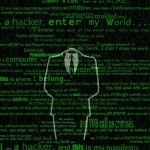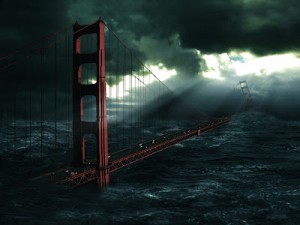– Big money interests don’t give up. They see the possibility to extract more profits for themselves from a ‘controlled’ Internet and the goal of increasing profits is their one aim. The idea that it might disadvantage the rest of us simply doesn’t come into it.
– As I have said before, these situations come about because we, humanity, have not come to a clear decision about what our civilization should be about.
– Should we choose to make it a civilization which has the optimization of the quality of life for all of us as its highest priority?
– Or will we allow it to continue, by default, to be a Darwinian stage upon which we all struggle and in which the strongest cyclically and repeatedly corner the power and wealth of the world? And these cyclic struggles to be periodically punctuated by wars as different dominant factions vie or by revolutions because the unreasonably repressed and disadvantaged revolt against the unfairness.
– The calls for revolution are growing even now.
– A few years ago, I read the Rifters Trilogy (SciFi) by Peter Watts. These were Starfish (July 1999), Maelstrom (October 2001) and Behemoth: Seppuku (December 2004). Excellent books all.
– But what stuck with me from this series was Watts’ prediction that the world’s Internet would at some point be divided up into smaller regional units as a way of dealing with the rise of viruses, malware and attempts by various factions to control the medium of discourse.
– Interestingly, Europeans are talking about doing just that as are some other countries.
– Within such regional Internets, each region could have the Internet it wants.
– And between regional Internets, the interfaces would be a matter of negotiation between regions. Today, we can see the beginnings of such separations when we observe the Great Firewall of China.
– It is sad that it will come to this but, until we decide on a world for all of us rather than a world for the strong and greedy, we will inevitably have the conflicts and power grabs that will lead us down this road.
– dennis
– – – – – – – – – – – – – – – – – – – – – – –
 Last week, an obscure but potentially internet-transforming document was leaked from the U.S. Federal Communications Commission. It revealed that government regulators are considering rules that would give big companies a chance to make their online services run faster than smaller ones.
Last week, an obscure but potentially internet-transforming document was leaked from the U.S. Federal Communications Commission. It revealed that government regulators are considering rules that would give big companies a chance to make their online services run faster than smaller ones.
The proposed rules were revealed in the New York Times, and they would overturn the principle of “network neutrality” on the internet. Put simply, network neutrality allows you to use services from rich companies like Google and small startups with equal speed through your ISP. You can read a blog hosted on somebody’s home server, and it loads just as quickly as a blog on Tumblr.
Without network neutrality, Tumblr could cut a deal with your ISP — let’s say it’s Comcast — and its blogs would load really quickly while that home server blog might take minutes to load pictures. It might not even load at all. You can see why people in the freedom-of-speech obsessed United States might not be happy with chucking network neutrality. It privileges some speech over others, based on financial resources.
At the same time, ISPs would love to end network neutrality because they want to charge more to major players like Netflix in order to support their streaming content. Now, it looks like the FCC is thinking seriously about letting ISPs have what they want.
Over at Slate, lawyer Marvin Ammori sums up:
The FCC is going to propose that cable and phone companies such as Verizon, AT&T, and Time Warner Cable are allowed to discriminate against them, giving some websites better service and others worse service. Cable and phone companies will be able to make preferred deals with the companies that can afford to pay high fees for better service. They will even be allowed to make exclusive deals, such as making MSNBC.com the only news site on Comcast in the priority tier, and relegating competitors to a slow lane. The FCC is authorizing cable and phone companies to start making different deals with thousands or millions of websites, extracting money from sites that need to load quickly and reliably. So users will notice that Netflix or Hulu works better than Amazon Prime, which buffers repeatedly and is choppy. New sites will come along and be unable to compete with established giants. If we had had such discrimination a decade ago, we would still be using MySpace, not Facebook, because Facebook would have been unable to compete.
The chairman believes he can help us in one way: He will make sure all these highly discriminatory new tolls are “commercially reasonable.” Will that matter? No. Commercially reasonable deals won’t be measured by the market. If Amazon is paying twice what eBay is paying, the FCC will only make sure each price is reasonable, not that the prices are nondiscriminatory.
He adds that this “reasonable” pricing will hardly be reasonable, unless your company is insanely rich:
So, according to the FCC, when Verizon discriminates against a startup, we shouldn’t be alarmed, because (while being discriminated against), this startup can hire a lot of expensive lawyers and expert witnesses and meet Verizon (a company worth more than $100 billion) at the FCC and litigate this issue out, with no certainty as to the rule. The startup will almost certainly lose either at the FCC or on appeal to a higher court, after bleeding money on lawyers.
Big internet service companies have been pushing the FCC to craft such regulations for years. In 2010, we wrote about a proposal from Amazon and Google, urging the FCC to adopt pay-to-play rules that would allow some companies to get their content to your eyeballs faster than smaller players. It’s no exaggeration to say that rules like this would destroy the internet as we know it.
Now it looks like the rules that Googlezon wished for are actually in process.
Writing in the New Yorker, law professor Tim Wu explains:
The new rule gives broadband providers what they’ve wanted for about a decade now: the right to speed up some traffic and degrade others. (With broadband, there is no such thing as accelerating some traffic without degrading other traffic.) We take it for granted that bloggers, start-ups, or nonprofits on an open Internet reach their audiences roughly the same way as everyone else. Now they won’t. They’ll be behind in the queue, watching as companies that can pay tolls to the cable companies speed ahead. The motivation is not complicated. The broadband carriers want to make more money for doing what they already do. Never mind that American carriers already charge some of the world’s highest prices, around sixty dollars or more per month for broadband, a service that costs less than five dollars to provide. To put it mildly, the cable and telephone companies don’t need more money.
Wu has studied corporate controls of electronic communication for most of his life, and is the author of a terrific book about telecom monopolies called The Master Switch. He’s worked as an adviser for the FCC, and has personally talked to President Obama about the need for net neutrality. So his disappointment is palpable when he notes that the leaked rules, confirmed as real by insiders at the agency, would allow internet companies to pay ISPs payola to get their traffic privileged above others.
This is the first step toward a world where corporate monopolies on content start affecting not just what you can see and read online — but also how you gain access to it. The signal will be out there, but your ISP just won’t deliver it to you.
An internet without network neutrality will look a lot like television does now. You’ll depend entirely on your cable company to get broadcasts, and they will only deliver their handpicked channels in their cable packages. There will probably be a little room for the web equivalent of public access television, but it will be so underfunded and slow to load that almost nobody will see it.
It used to be that when a show couldn’t make it on broadcast television, we would watch it online. That’s how amazing stuff like Dr. Horrible made it into the world. But without net neutrality, we lose that option too. If a company doesn’t have the money or legal acumen to get its content included in ISP packages, you will never see its programming. You’ll never have those shows; you’ll never have those apps; and you’ll never know what you’re missing.
– To the original… ➡





